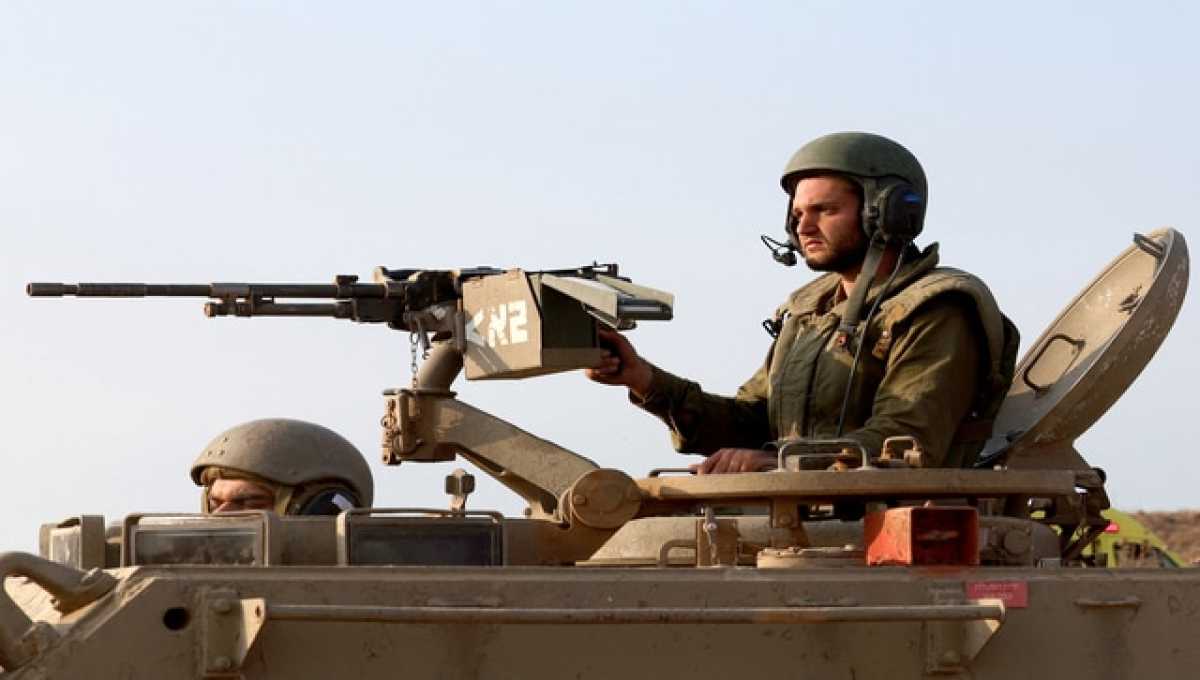World
Israel Regains Control of Gaza Border, Launches Worst Air Strikes in History

Israel declared that it has regained control of the Gaza border on October 10th, despite a threat from Hamas militants to execute captives. They launched a series of air strikes, which are considered the worst in the 75-year history of the conflict with the Palestinians. The Israeli Defense Forces have called up an unprecedented 300,000 reservists, and they have also imposed a blockade on Gaza. There is speculation that a ground assault may be planned.
According to Israeli TV channels, Hamas fighters killed around 900 people in an unprecedented weekend attack, including 260 at a desert music festival. The Palestinian death toll, according to Gaza’s Health Ministry, stands at 770 as a result of retaliatory strikes by Israel. Hamas has threatened to execute an Israeli captive for every civilian house bombed without warning, and they refuse to negotiate over hostages under fire.
In response to the escalation of the conflict, Israel placed Prime Minister Benjamin Netanyahu‘s coalition on a war footing and was in the process of incorporating opposition politicians into a national unity government.
Lebanon has also been affected by the conflict, as Israeli shelling killed at least three Hezbollah militants. The United Nations has accused Israel of striking residential buildings, schools, and U.N. buildings in Gaza, resulting in the displacement of 180,000 Palestinians.
Various nations have reported the deaths and abductions of their citizens by Hamas. Thailand reported 18 deaths, Argentina reported 15, and the U.S. reported 11 deaths. More than 10 Britons are feared dead or missing, according to BBC broadcaster.
In the midst of the conflict, Iran’s top authority Ayatollah Ali Khamenei denied any involvement in Hamas’ attack but expressed support for those causing damage to Israel. The United States, which already provides Israel with $3.8 billion in military assistance annually, has offered additional security help but does not plan to send troops.
The European Union initially announced the suspension of aid to Palestinians but later backtracked on the decision. Palestinian President Mahmoud Abbas is expected to visit Moscow, and Qatari mediators are engaged in talks with Hamas to negotiate the release of Israeli captives.
Amid global protests and strong opinions, Harvard University alumni condemned a pro-Palestinian statement made by students, blaming Israel’s “apartheid regime” and “decades of occupation” for the violence. Canadian authorities criticized pro-Hamas demonstrations as a glorification of violence, while Australian police are investigating apparent anti-Semitic chants at a protest.
Russia has expressed its desire to help resolve the conflict and claims to be in contact with both Israel and Hamas. China’s ambition to be a mediating power and diplomatic heavyweight in the Middle East may be tested as the crisis unfolds.
The impact of the conflict can be seen in various sectors. Oil prices initially spiked 4% but have since eased, while gold prices have risen. Major international companies have suspended operations in Israel, and several air carriers have suspended or reduced flights to and from Tel Aviv. As a result of the escalating conflict, the Israeli shekel has reached its weakest level since early 2016.
These events have left many individuals affected and fearful for their safety. Salah Hanouneh, a 73-year-old resident of Gaza, expressed the lack of safety and security in the region. Israeli military spokesperson Daniel Hagari vowed that Hamas would be targeted wherever they are, while Iran’s Ayatollah Ali Khamenei blamed the “Zionist regime” for the disaster. Natthaporn Onkaew’s mother, whose son is being held hostage by Hamas, pleaded for his release, and survivor Elad Hakim described the sudden descent from paradise to hell during the attack on the music festival.
At Reuters, we uphold the Thomson Reuters Trust Principles.












